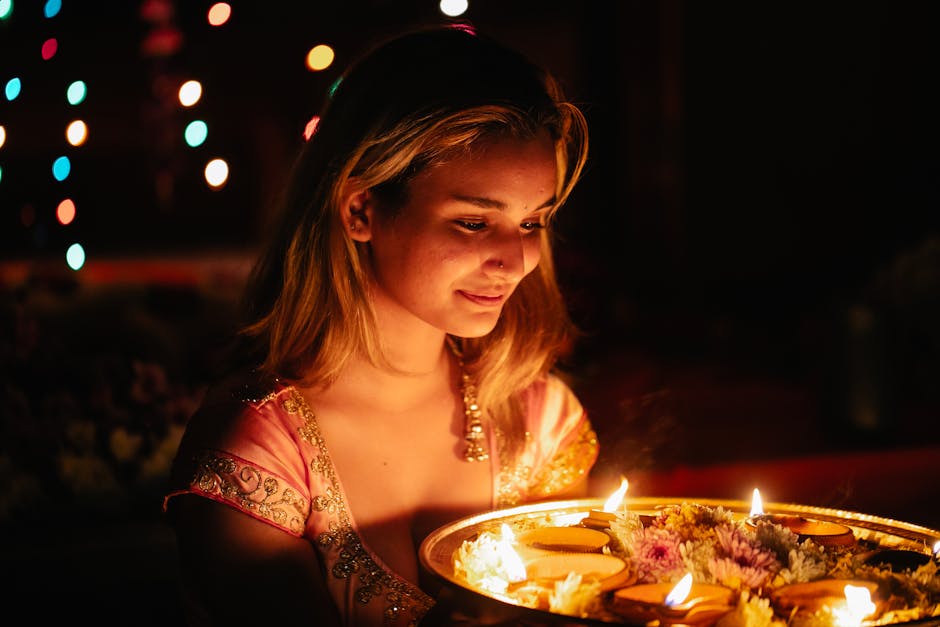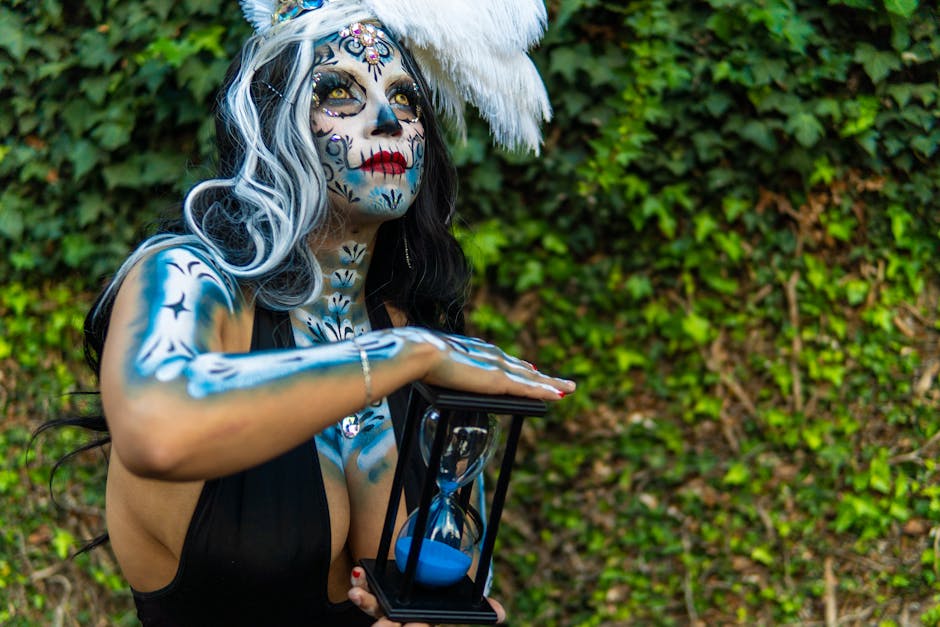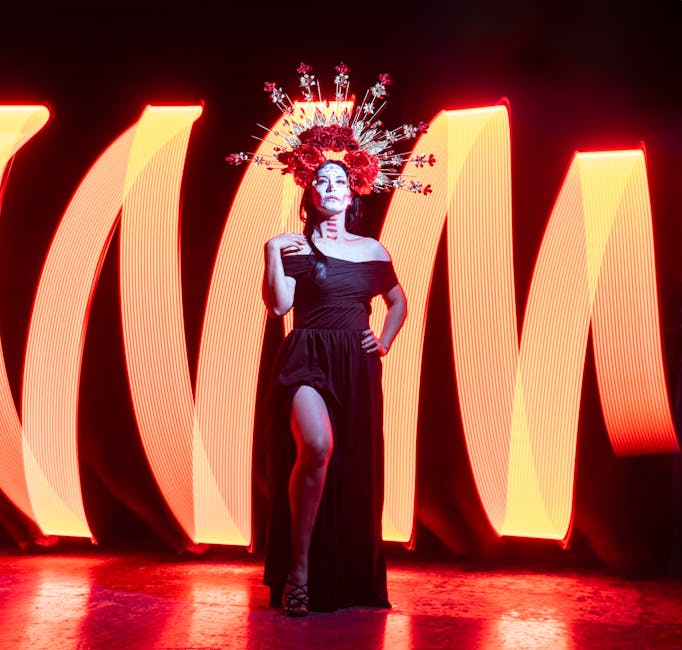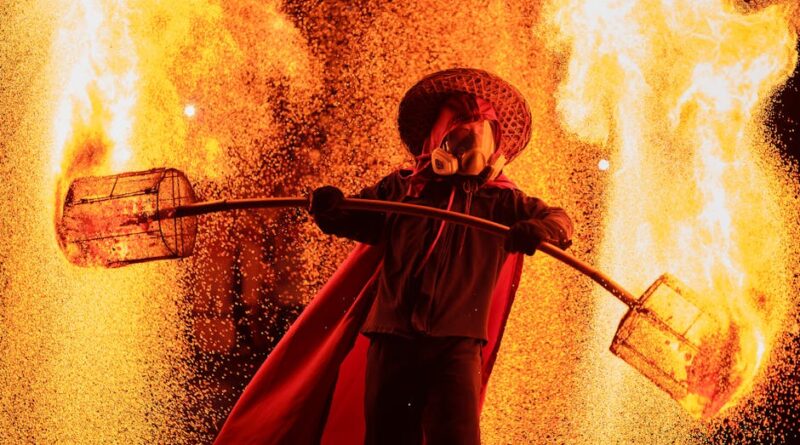Cultural Festival Highlights: Exploring the Rich Tapestry of Celebrations
When we think of festivals, our minds often conjure up images of vibrant colors, joyful music, and the delicious aroma of food wafting through the air. Festivals are not only a time of celebration but also a reflection of the rich cultural tapestry that makes up our world. From ancient traditions to modern interpretations, cultural festivals offer a glimpse into the heart and soul of a community. In this article, we delve into the world of cultural festival highlights, exploring the significance, diversity, and impact of these celebratory events.
The Historical Roots of Cultural Festivals

By Lara Jameson via Pexels
Cultural festivals have a long history, dating back to ancient times when communities would come together to mark important milestones, honor deities, or celebrate the changing seasons. These festivals served as a way to strengthen social bonds, pass down traditions to future generations, and express cultural identity. In many cultures, festivals were also a time for spiritual reflection and renewal, with rituals and ceremonies playing a central role in the festivities.
One of the oldest known cultural festivals is the ancient Egyptian festival of Wepet Renpet, which marked the beginning of the agricultural year. This festival, also known as the New Year festival, involved elaborate ceremonies, feasting, and dancing to ensure a bountiful harvest in the coming year. Similarly, the Chinese New Year festival, known as the Spring Festival, has been celebrated for over 4,000 years and is a time of family reunions, feasting, and fireworks.
As societies evolved and cultures intermingled, festivals began to take on new meanings and forms. Today, cultural festivals can be found in every corner of the globe, each reflecting the unique heritage and customs of the community in which they are held.
The Diversity of Cultural Festivals

By Israyosoy S. via Pexels
One of the most striking aspects of cultural festivals is their incredible diversity. From the colorful Holi festival in India, where participants throw colored powders at each other in celebration of spring, to the solemn Day of the Dead festival in Mexico, where families honor their deceased loved ones with altars and offerings, cultural festivals come in a wide variety of forms and expressions.
Some festivals are rooted in religious traditions, such as the Ramadan festival in the Islamic world, which marks the month of fasting and prayer. Others are more secular in nature, like the Carnival festival in Brazil, which is known for its extravagant parades, samba music, and elaborate costumes.
One of the key elements that unites all cultural festivals is their ability to bring people together in a spirit of joy and camaraderie. Whether it’s through music, dance, food, or art, festivals provide a platform for communities to express themselves, share their heritage, and forge lasting connections with one another.
The Impact of Cultural Festivals

By Javier Arizmendi via Pexels
While cultural festivals are primarily a time of celebration, they also have a significant impact on the communities in which they are held. Festivals can boost local economies by attracting tourists, stimulating small businesses, and creating jobs in the hospitality and entertainment sectors. They also help to promote cultural exchange and understanding, as visitors from different backgrounds come together to experience and appreciate the traditions of a particular culture.
Furthermore, cultural festivals play a crucial role in preserving and promoting traditional arts and crafts. Many festivals feature performances by local artists, artisans, and musicians, providing them with a platform to showcase their talents and pass down their skills to future generations. In this way, festivals serve as a vital link between the past and the present, ensuring that cultural heritage is safeguarded and celebrated.
Additionally, festivals can have a positive impact on community cohesion and identity. By bringing people together in a shared experience of joy and festivity, festivals help to strengthen social bonds, foster a sense of belonging, and promote solidarity among community members. This sense of unity and togetherness is vital in an increasingly globalized world, where traditional values and customs are often under threat.
Case Study: The Notting Hill Carnival
One of the most famous cultural festivals in the world is the Notting Hill Carnival, held annually in London, UK. This vibrant celebration of Caribbean culture attracts over a million visitors each year and is the largest street festival in Europe. The Notting Hill Carnival features colorful parades, live music, dance performances, and delicious Caribbean cuisine, creating a festive atmosphere that is second to none.
Originally founded in the 1960s by the Caribbean community in London as a way to celebrate their cultural heritage and combat racism and discrimination, the Notting Hill Carnival has since grown into a major event that showcases the diversity and vibrancy of the city. Today, the carnival continues to draw people from all walks of life, bringing together residents, tourists, and artists in a joyous celebration of Caribbean culture.
Through its music, dance, food, and art, the Notting Hill Carnival has become a symbol of multiculturalism and inclusivity, promoting unity and diversity in a city known for its cosmopolitanism. The carnival has also had a significant economic impact, generating millions of pounds in revenue for local businesses and supporting the cultural sector in London.
Challenges and Controversies
While cultural festivals are generally seen as positive and enriching experiences, they are not without their challenges and controversies. One of the main issues that festivals face is cultural appropriation, where elements of a particular culture are adopted or adapted by members of another culture without proper acknowledgment or respect. This can lead to misunderstandings, misrepresentations, and hurt feelings among the communities involved.
Another challenge that cultural festivals face is commercialization, where the original meaning and purpose of the festival are overshadowed by commercial interests. In some cases, festivals may become overly commercialized, with corporate sponsors, advertising, and consumerism taking precedence over the cultural and spiritual aspects of the event.
Additionally, festivals can sometimes be a source of tension or conflict within a community, especially if different groups have conflicting interpretations of the festival’s significance or if there are disagreements over how the festival should be organized and managed. In these cases, dialogue, mediation, and compromise are essential to ensure that the festival remains a unifying and inclusive event for all.
Expert Opinions
According to cultural anthropologist Dr. Sarah Jenkins, “Cultural festivals are a vital part of our shared human experience, providing us with a window into the diverse and fascinating world of traditions, beliefs, and customs that make up our global heritage. By participating in cultural festivals, we not only celebrate our differences but also discover the common humanity that unites us all.”
Renowned festival organizer and cultural critic, Dr. Jamal Khan, states, “Cultural festivals are a powerful tool for social change and community empowerment. They have the ability to bring people together, foster understanding and respect, and create lasting connections between individuals and groups. In an increasingly divided world, festivals offer a glimmer of hope and unity.”
Conclusion
In conclusion, cultural festivals are a vibrant expression of the diversity, creativity, and resilience of human culture. From ancient traditions to contemporary celebrations, festivals provide us with a unique opportunity to connect with our roots, celebrate our differences, and forge new connections with others. By honoring the past, embracing the present, and looking towards the future, cultural festivals remind us of the beauty and richness of our shared heritage.
As we continue to navigate an ever-changing world, let us remember the importance of cultural festivals in preserving, promoting, and celebrating the unique identities and traditions that make us who we are. In the words of poet Maya Angelou, “We are more alike, my friends, than we are unalike.” Let us come together in the spirit of unity, respect, and joy, and celebrate the wonder and beauty of cultural festivals.




